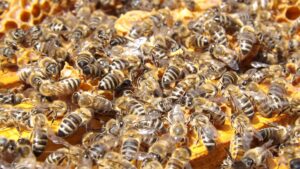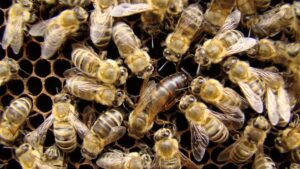The latest bee health report from the United States Department of Agriculture (USDA) is good news for all who care about the health of honey bee colonies, Bayer CropScience entomologist Dick Rogers says in a statement.
The bee report was released May 13 and notes that for the second year in a row, winter losses of U.S. honey bee colonies were well below the historic average seen since these annual surveys began.
“More importantly, the long-term trend of overwintering losses continues to show improvement. The reasons for success are greater awareness of factors affecting honey bee health, particularly Varroa mite, and better management, including extensive use of the highly effective Varroacide, Apivar,” Rogers says.
Rogers notes that this report comes shortly after the USDA released its annual Honey Report, which showed that the number of U.S. honey bee colonies grew to 2.74 million in 2014, the highest level in many years, continuing a 10-year trend of steady growth.
The report, though, notes that high summer bee colony losses remain “very troubling.”
Rogers says “Summer losses are expected and common, however, because of Varroa, other disorders, queen issues, and pesticide residues in hives, especially extremely high residues of bee protecting Varroacides, [and] beekeepers do face a challenge to keep these losses to a minimum.”
The full statement from Bayer is available here: https://www.bayercropscience.us/news/blog/2015/may/051315-good-news-on-overwinter-bee-health-trends











